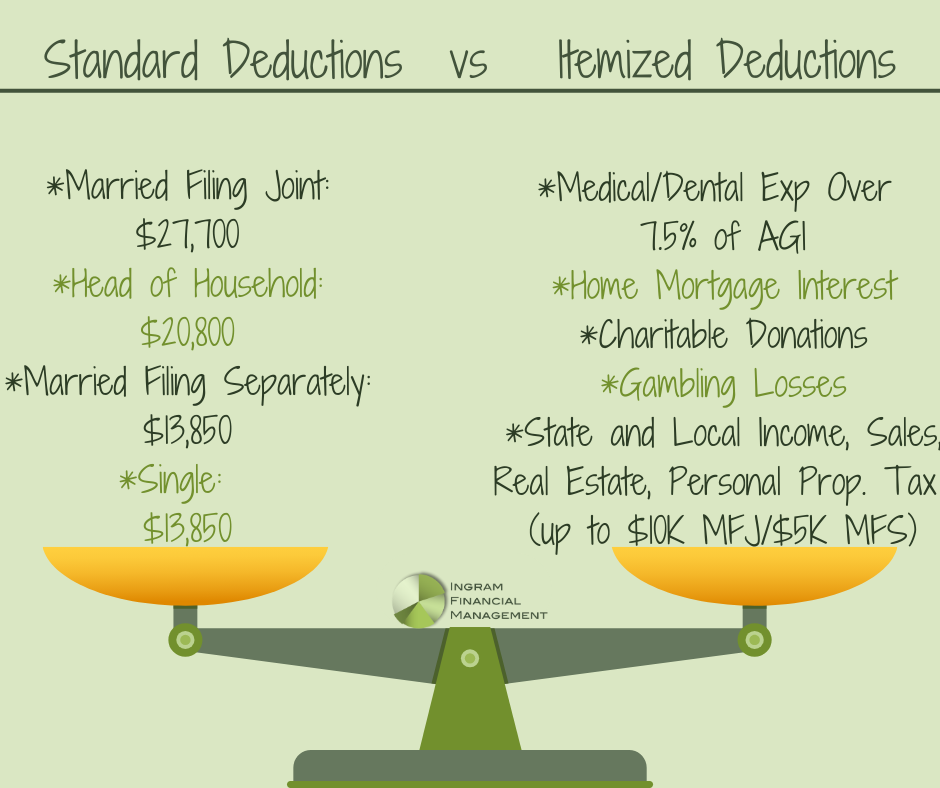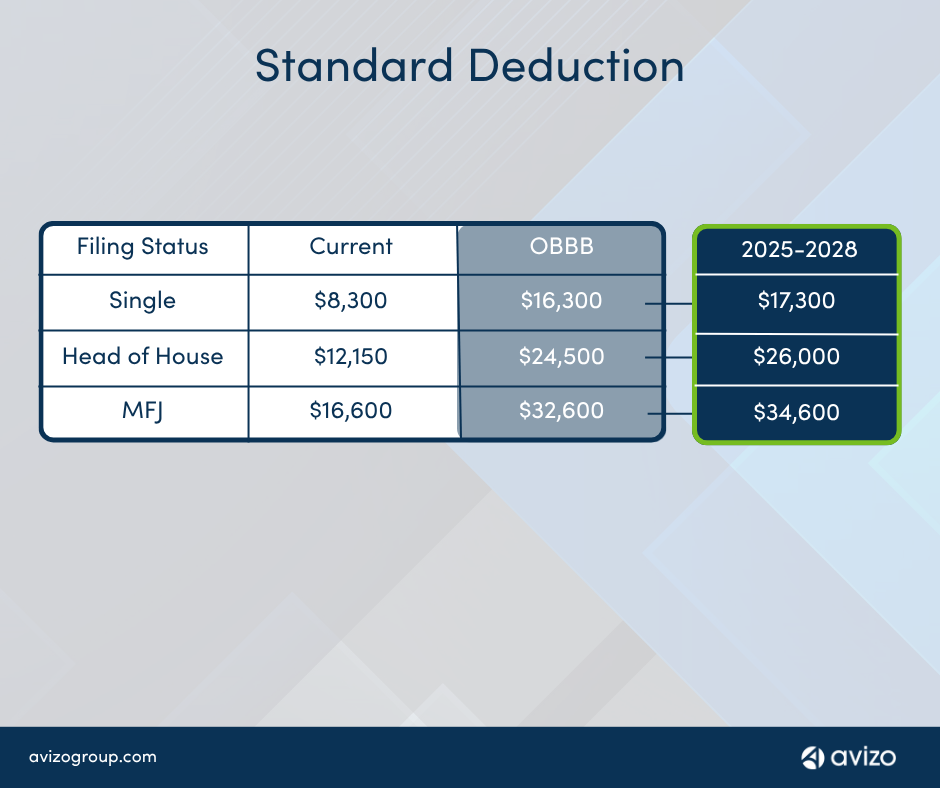Practical examples of how the FEIE Standard Deduction influences taxable income
All About the Foreign Earned Earnings Exemption: Maximizing Your Standard Reduction Conveniences
The Foreign Earned Income Exemption (FEIE) provides a beneficial chance for U.S. citizens living abroad to lessen their tax obligations. Recognizing the eligibility criteria is essential for those looking for to take advantage of this exemption. Additionally, asserting the conventional reduction can enhance overall tax obligation benefits. However, handling this procedure includes cautious focus to information and a recognition of typical pitfalls. Checking out these facets can offer clarity and maximize possible tax benefits.
Comprehending the Foreign Earned Income Exclusion (FEIE)
The Foreign Earned Income Exclusion (FEIE) enables united state people and resident aliens working abroad to leave out a section of their international earnings from government earnings tax. This stipulation functions as an economic alleviation mechanism, enabling expatriates to retain a bigger share of their earnings earned in foreign countries. By lowering gross income, the FEIE aids reduce the burden of dual taxation, as people may additionally go through taxes in their host nations. The exemption uses only to gained earnings, which includes salaries, salaries, and expert fees, while easy earnings and financial investment gains do not certify. To take advantage of the FEIE, individuals must submit certain kinds with the IRS, outlining their foreign earnings and residency - FEIE Standard Deduction. Comprehending the subtleties of the FEIE can substantially affect financial planning for united state residents living overseas, making it essential for expatriates to stay notified about this helpful tax obligation provision
Qualification Requirements for the FEIE
To receive the Foreign Earned Earnings Exclusion (FEIE), people should satisfy specific eligibility criteria. This includes satisfying residency demands, passing the physical visibility test, and developing a tax home in a foreign nation. Each of these factors plays a crucial function in establishing whether one can benefit from the exclusion.
Residency Demands
Fulfilling the residency requirements is essential for individuals looking for to get the Foreign Earned Earnings Exemption (FEIE) To be qualified, taxpayers must establish an authentic residence in a foreign nation or nations for an undisturbed period that usually extends a whole tax year. This demand emphasizes the necessity of a deeper link to the international area, relocating past simple physical visibility. Individuals need to demonstrate their intent to live in the international nation and have developed their living circumstance there. Factors such as the size of remain, kind of housing, and local neighborhood involvement are thought about in identifying residency. Meeting these standards is crucial, as failing to do so may disqualify one from benefiting from the FEIE.
Physical Existence Test
Establishing eligibility for the Foreign Earned Income Exemption (FEIE) can likewise be accomplished through the Physical Existence Examination, which needs individuals to be physically existing in an international nation for a minimum of 330 complete days throughout a consecutive 12-month period. This test is helpful for those that might not fulfill the residency need however still reside abroad. The 330 days have to be complete days, suggesting that any kind of day invested in the United States does not count toward this total. It is necessary for individuals to keep exact documents of their travel days and places to support their claims. Effectively passing this test can considerably lower taxable income and boost monetary outcomes for migrants.
Tax Obligation Home Location
Tax obligation home location plays an important function in figuring out eligibility for the Foreign Earned Revenue Exclusion (FEIE) To certify, a specific need to establish a tax obligation home in a foreign nation, which indicates their primary workplace is outside the United States. This is distinct from a plain residence; the private must perform their work in the international country while preserving a considerable connection to it. The internal revenue service requires that the taxpayer can demonstrate the intent to continue to be in the foreign location for a prolonged duration. Additionally, maintaining a home in the U.S. can make complex qualification, as it may suggest that the individual's true tax home is still in the United States. Comprehending this standard is important for making the most of FEIE advantages.
How to Assert the FEIE on Your Income Tax Return
Claiming the Foreign Earned Income Exclusion (FEIE) on an income tax return needs mindful focus to detail and adherence to particular IRS guidelines. Taxpayers need to initially validate eligibility by fulfilling either the bona fide house test or the physical existence examination. Once eligibility is confirmed, they need to finish internal revenue service Form 2555, which details foreign earned revenue and appropriate info concerning their tax obligation home.
It is vital to report all international income precisely and preserve proper documentation to sustain cases. Taxpayers should also know the optimal exemption restriction, which is subject to annual modifications by the internal revenue service. Declaring Kind 2555 along with the yearly income tax return permits taxpayers to omit a part of their international earnings from U.S. taxes. It is advisable to consult a tax obligation specialist or Internal revenue service resources for updated details and advice on the FEIE process, guaranteeing conformity and maximization of prospective benefits.

The Criterion Deduction: What You Need to Know
Exactly how does the common deduction effect taxpayers' overall financial circumstance? The basic deduction acts as a significant tax benefit, minimizing gross income and potentially reducing tax responsibilities. For the tax obligation year 2023, the standard deduction is evaluated $13,850 for single filers and $27,700 for wedded couples submitting collectively. This reduction streamlines the declaring procedure, as taxpayers can select it rather than itemizing reductions, which requires thorough record-keeping.

Taxpayers making foreign income may still claim the basic reduction, profiting from minimized gross income even while utilizing the Foreign Earned Revenue Exemption (FEIE) It is crucial to keep in mind that the standard reduction can not be integrated with itemized reductions for the exact same tax obligation year - FEIE Standard Deduction. Understanding the common reduction allows taxpayers to make educated choices concerning their tax obligation approaches, maximizing offered benefits while making sure conformity with Internal revenue service regulations.
Techniques for Maximizing Your Reductions
Maximizing reductions under the Foreign Earned Earnings Exclusion calls for a clear understanding of earned income limitations and the benefits of declaring housing Find Out More exemptions. In addition, using Form 2555 effectively can enhance the possibility for considerable tax financial savings. These techniques can significantly impact the general tax obligation responsibility for expatriates.
Understand Gained Earnings Limitations
While lots of expatriates look for to decrease their tax problem, understanding the gained revenue limitations is necessary for successfully leveraging the Foreign Earned Income Exemption. The Internal Earnings Solution (IRS) establishes details limits that dictate the maximum amount of foreign earned revenue eligible for exemption. For the tax obligation year 2023, this limit is $120,000 per certified person. Exceeding this threshold may lead to taxes on the earnings above the restriction, diminishing the benefits of the exemption. To maximize reductions, expatriates ought to keep accurate documents of their foreign made revenue and analyze their qualification for the exclusion each year. Strategic preparing around these limitations can greatly improve tax obligation financial savings, enabling expatriates to maximize their financial circumstance while living abroad.
Claiming Housing Exemption Benefits
Numerous migrants neglect the prospective benefits of declaring the Housing Exclusion, which can greatly reduce their gross income. This exclusion enables individuals living abroad to subtract particular real estate expenses from their gross earnings, making it much easier to fulfill financial responsibilities without incurring significant tax obligation liabilities. To optimize this benefit, expatriates must confirm they certify based upon their home and employment situations. In addition, recognizing eligible expenditures-- such as rental fee, utilities, and upkeep-- can enhance the overall deduction. Keeping detailed records of these costs is important for substantiating claims. By purposefully steering with the Housing Exclusion, expatriates can especially reduce their tax obligation problem and retain more of their earnings while living overseas, eventually improving their financial wellness.
Utilize Kind 2555 Properly
Utilizing Type 2555 successfully can significantly improve the financial advantages offered to expatriates, particularly after capitalizing on the Housing Exclusion. This form allows people to declare the Foreign Earned Revenue Exemption, which can substantially decrease gross income. To make best use of reductions, migrants need to confirm they satisfy the qualifications, including the physical visibility test or the authentic residence test. It is crucial to properly report all foreign gained revenue and to keep detailed records of eligibility. In addition, utilizing the Real estate Exclusion in tandem with Type 2555 can even more reduce overall tax liability. By comprehending the intricacies of these types, migrants can enhance their tax obligation circumstance and keep more of their hard-earned revenue while living abroad.
Typical Challenges to Stay Clear Of When Filing Your Taxes Abroad

Often Asked Inquiries
Can I Assert Both FEIE and the Foreign Tax Obligation Debt?
Yes, a person can claim both the Foreign Earned Income Exclusion (FEIE) and the Foreign Tax Obligation Debt (FTC) They should assure that the very same income is not used for both advantages to avoid dual advantages.
What Occurs if I Surpass the FEIE Income Limitation?
Exceeding the Foreign Earned Earnings Exemption (FEIE) income limitation leads to the ineligibility for the exemption on the excess amount. This can cause taxable earnings in the USA, requiring proper tax obligation filings.
Exist Any Kind Of State Tax Obligation Effects for FEIE?
State tax implications for the Foreign Earned Revenue Exclusion (FEIE) differ by state. Some states may tire foreign earnings while others adhere to federal exclusions, making it vital for individuals to consult state-specific tax obligation regulations for quality.

Exactly How Does FEIE Impact My Social Protection Conveniences?
The Foreign Earned Revenue Exemption (FEIE) does not directly impact Social Safety and security advantages. However, income omitted under FEIE might impact the calculation of typical indexed monthly revenues, possibly influencing future advantages.
Can I Withdraw My FEIE Election After Declaring It?
Yes, an individual can revoke their Foreign Earned Income Exclusion (FEIE) election after declaring it. This retraction needs to be performed in creating and submitted to the IRS, sticking to specific standards and due dates.
Recognizing the Foreign Earned Income Exemption (FEIE)
The Foreign Earned International Exclusion EarningsFEIE) allows U.S. permits and resident aliens working abroad to exclude a leave out of their foreign earnings from incomes income governmentEarnings Taxpayers gaining international revenue may still claim the basic reduction, benefiting from minimized taxable earnings even while making use of the Foreign Earned Earnings Exemption (FEIE) Optimizing reductions under the Foreign Earned Earnings Exclusion calls for a clear understanding of earned earnings restrictions and the advantages of asserting housing exclusions. While several expatriates look for to reduce their tax worry, understanding the made earnings limitations is vital for successfully leveraging the Foreign Earned Revenue Exemption. Surpassing the Foreign Earned more Income Exemption (FEIE) earnings restriction results in the ineligibility for the exclusion on the excess amount.